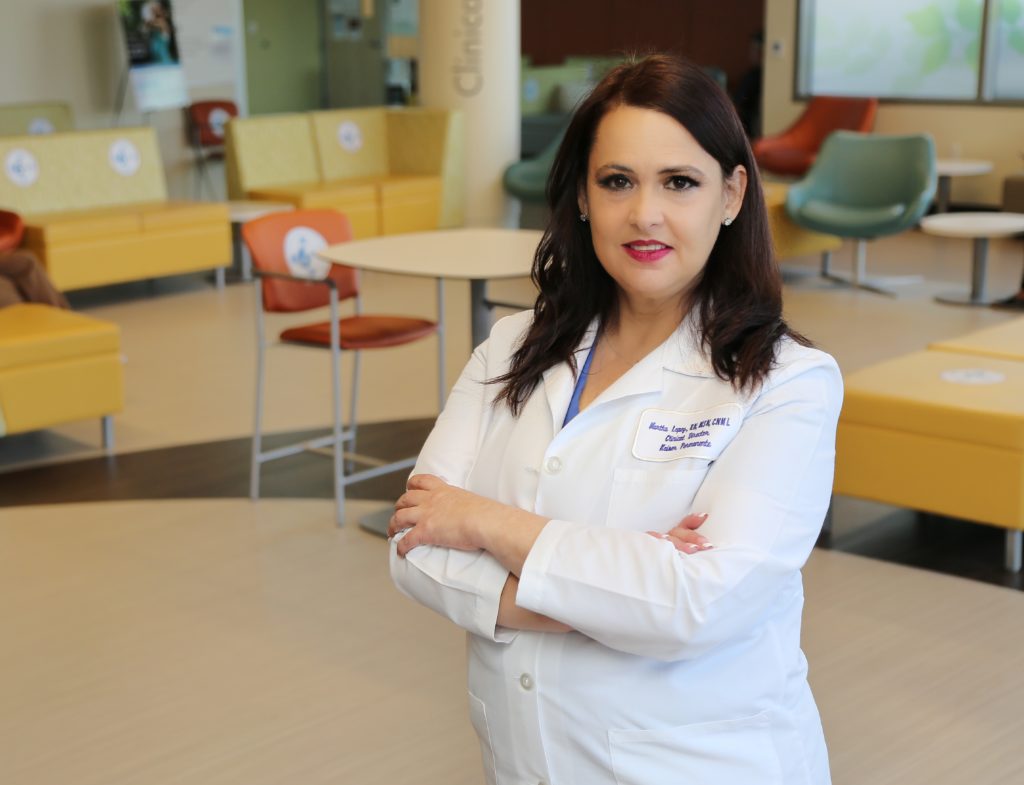My Specialty
Adult Inpatient Services, Martha Lopez, Kaiser Permanente Fontana Medical Center
Leading and empowering nurses in a time of rapid change

Martha Lopez, RN, MSN, PHN, CNML
Director of Adult Inpatient Service
Kaiser Permanente Fontana Medical Center
Please describe the trajectory of your nursing career.
My first job was in 1991, as a medical/ surgical oncology nurse, and I joined Kaiser Permanente Fontana in 1998. In 2000, I became assistant clinical director for the med/surg-telemetry/critical care/stepdown unit.
In 2010, I transferred to Kaiser Permanente Ontario Medical Center to assist with the opening of the new hospital as clinical director for med/surg-telemetry, handling staffing, payroll, office management, WOCN, PICC and discharge callback.
During that same period, I was earning my MSN with a concentration in nursing informatics, graduating in 2013. (I earned my BSN in 2003.) A year later, I became a certified nurse manager and leader (CNML) through the American Organization for Nursing Leadership. I also successfully completed several Kaiser Permanente management and leadership programs.
What are your responsibilities in your current role?
As director, I oversee the daily operations of all adult inpatient units. I’m responsible for ensuring that our patient care services are in compliance with the array of state and federal regulations that apply to hospitals, and for promoting patient- and family-centered care across all our clinical practices, services and operations.
Essentially, I provide processes and methods to evaluate and improve patient care; set departmental policies; develop and implement service area initiatives; and share best practices between our various teams.
I’m also responsible for managing our budget and financial performance, which includes identifying ways to reduce costs while improving quality and patient safety.
Part of my job is directing and delegating to managers, but I also hire, terminate and discipline staff, and I resolve issues related to labor relations, employee and department safety. Finally, I’m part of the survey readiness process required to maintain our state licensing and Joint Commission accreditation.



